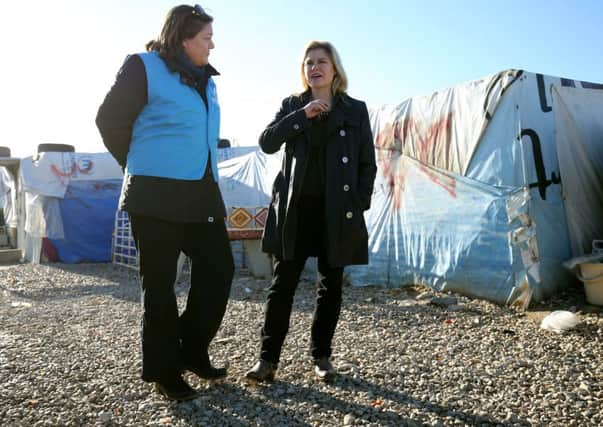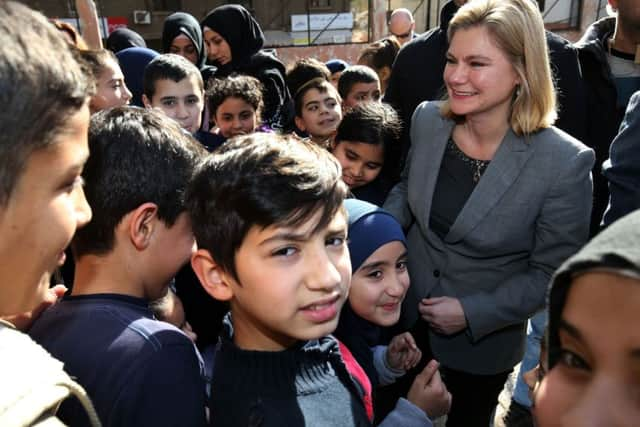International Women's Day: Why my Rotherham childhood drives my passion for equal opportunities


Secretary of State for International Development Justine Greening, was the first in her family to go to university and believes many around her could have followed the same path if they had more opportunity.
To mark International Women’s Day today, Ms Greening said she is proud of the work the UK Government is doing to see more women ‘climb the ladder’, but internationally and at home in Yorkshire, she is aware there is much more to do.
Advertisement
Hide AdAdvertisement
Hide AdShe said: “[My parents] were very supportive and I think that when we look at social mobility one of the things that really strikes me is how big a role my parents were able to play in my life in terms of helping me to set my sights high.


“It could have been a very different story,” said Ms Greening, who grew up in the South Yorkshire town and went to comprehensive Oakwood High School before studying economics at Southampton.
After a career in finance with Price Waterhouse Coopers and GlaxoSmithKline she went into politics and was elected for a London Conservative seat in 2005.
The conflict in Syria has dominated much of her time as Secretary of State for International Development, however she said she is extremely proud to be a founding member of a new women’s economic empowerment panel at the UN.
Advertisement
Hide AdAdvertisement
Hide AdShe said: “It’s amazing because it’s a big step forward to see the UN set up a high level panel and it’s really going to look at women’s economic empowerment and this issue of what it’s going to take to get women to be more economimcally independent.


“I think that’s the right thing to do in terms of women’s rights, but there’s a massive economic case for it.”
She said Ethiopa has estimated it would gain a £4bn boost to their economy every year if it got every girl through school, while a report from McKinsey Global Institute found making women more economically active could increase the world’s GDP by 11%.
Incensed at the global unlevel playing field, she adds ‘there are countries where if you’re a woman you’re not able to inherit assets, you can’t open a bank account, you might not be able to own land...’
Advertisement
Hide AdAdvertisement
Hide AdYet there is much to do at home too, and she describes the lack of social mobility for both men and women in the UK as one of the country’s biggest challenges.
Statistics from the last State of the Nation Report published in 2015 show Bradford, Wakefield and Doncaster councils were all in the country’s bottom 20 per cent of local authorities where residents are likely to be able to improve their life chances.
She hopes the Chancellor’s Northern Powerhouse agenda will help ‘turbo charge’ social mobility opportunities in the region with new jobs and prospects, and also calls for a focus on education.
She said: “For those of us who climbed the ladder we should be cheering on everyone else behind us and we should be trying to help make that ladder stronger for the next generation coming up it.”
Advertisement
Hide AdAdvertisement
Hide AdThe last thing she wants is for history to repeat itself for Yorkshire’s families, adding her late steel worker dad Paddy was ‘brilliant’ and ‘innovative’ but had sadly ‘never had the education really to help him.’